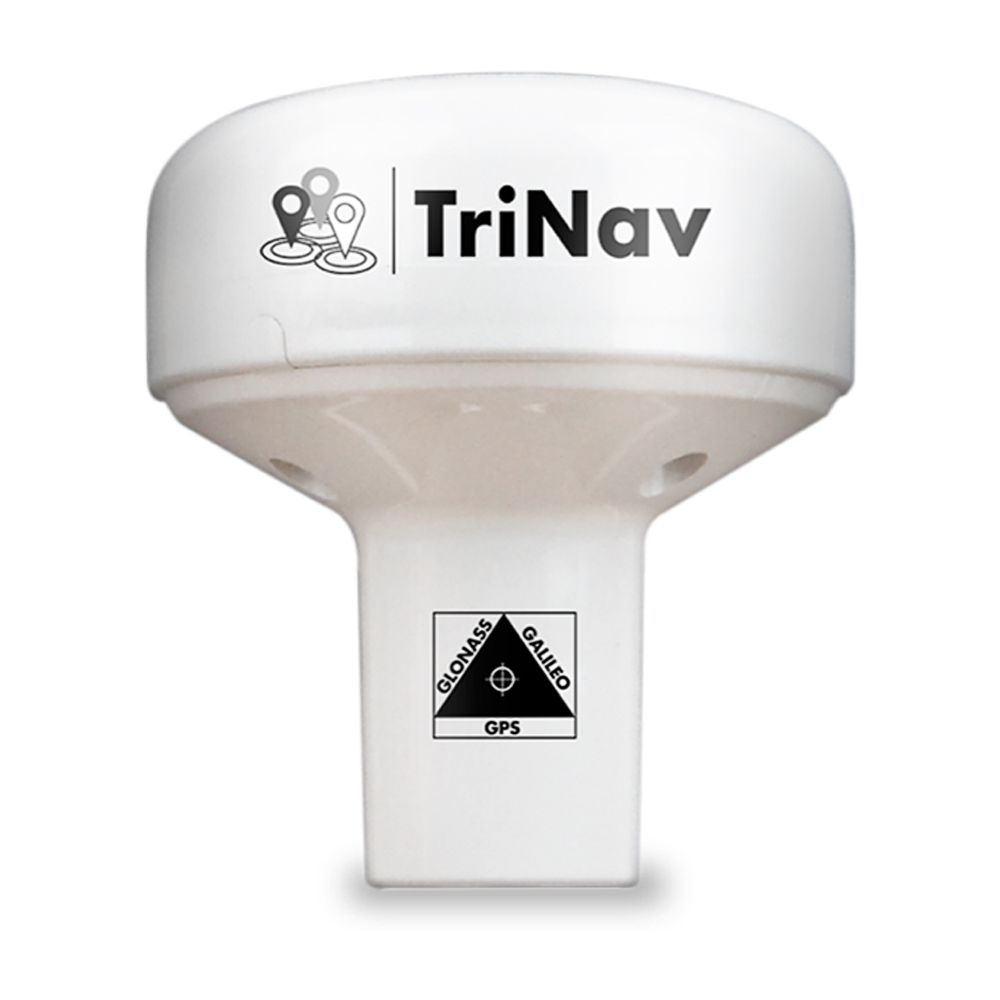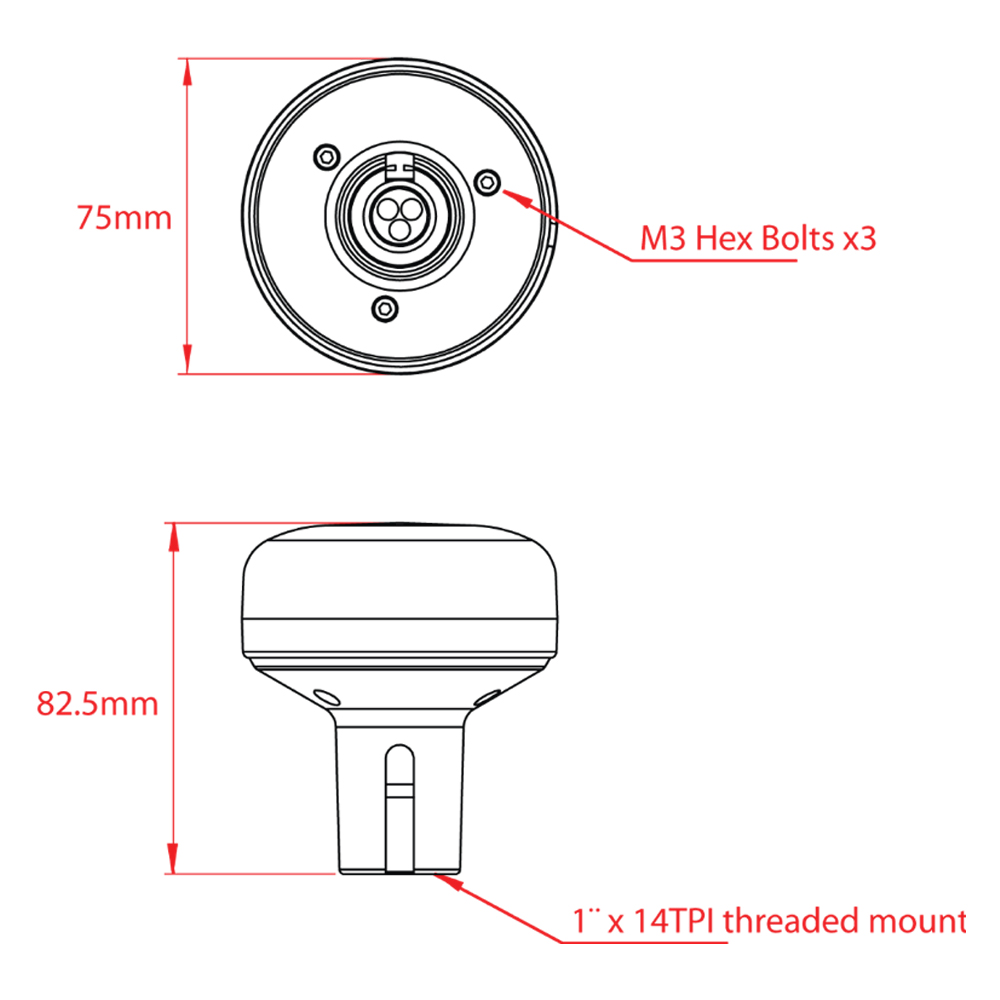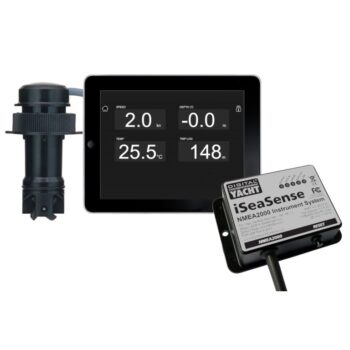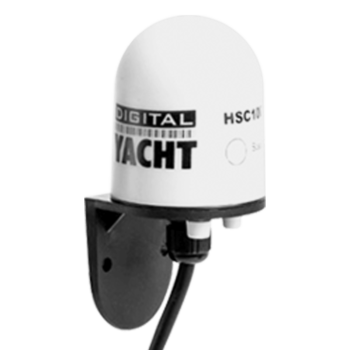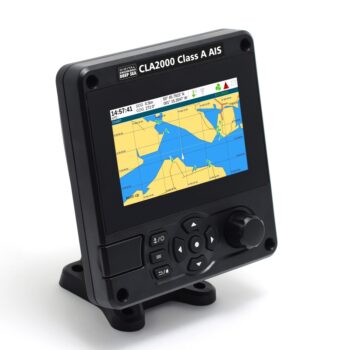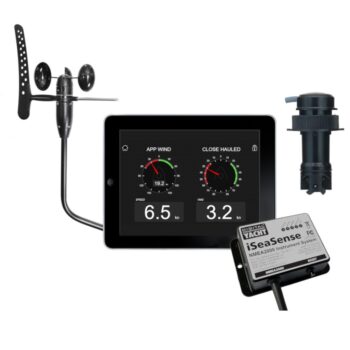“The GPS160, a high performance positioning sensor using GPS, Galileo, Beidou and Glonass satellite systems for exceptional positioning accuracies and redundancies. GPS160 has an NMEA 0183 interface.”
KEY FEATURES
Digital Yacht have unveiled their TriNav™ GPS160, a GPS antenna with NMEA 0183. This is a new, high performance positioning sensor using GPS, Glonass and the new Galileo satellite systems. Therefore, providing exceptional position accuracy and redundancy. Typical accuracy is better than 1m. Data can also be set to output at up to 18Hz for smoother plotter track displays. TriNav™ software technology also improves positioning inaccuracy that could occur through spoofing and local interference.
The device has a variety of modes through field programming. This includes single GNSS operation (eg Galileo only) as well as output configurations such as update rate, NMEA sentence structure etc.
The GPS160 with NMEA 0183 output (4800, 38400 and 115200 baud programmable). The GPS160 also supports a simple external MOB (man-over-board) switch or device. When triggered, the GPS160 creates a “synthesised” AIS SART MOB message on its NMEA output. This can then interface with a local plotter to identify the MOB. Most modern plotters support this with a clear MOB icon. As well as instant bearing and distance data to navigate to the casualty.
Also available with NMEA 2000, USB, WiFi or SeaTalk interface.
Galileo
Galileo is the new global navigation satellite system (GNSS) that has been in development over the past two decades. It joins the GPS and GLONASS systems and offers mariners a 3rd reliable positioning source. It is now fully operational as of 2020.
There are currently 22 satellites in usable condition. This means the satellite is working and adds to the service provision. There are then 2 satellites that are in “testing” and 2 more are marked as not available. The final constellation now consists of 30 satellites (24 operational and 6 spares) as of 2020.
The GPS160 can also connect to the WLN10 wireless interface to allow data to be sent to mobile devices such as iPhones, iPads and Tablets. There is also a USB interface for PC and MAC users (ZDIGUSBNMEA).
October 2023 – New Features: All GPS160 models now feature a new GNSS engine that supports QuadNav technology. These models now support the Chinese Beidou satellites (as well as GPS, Glonas and Galileo), which means all position fixes, course and speed over ground calculations will now be utilising the strongest satellite signals from a network of over 100 satellites. This results in improved time to first fix, more robust operation against jamming, “spoofing” and outages and also improved current consumption (<25mA)
SPECIFICATIONS
- 72 channel GPS, Glonass, Galileo, and Beidou GNSS positioning receiver
- Typically sub 1m accuracy thanks to QuadNav™ technology –combines all satellite data for optimum accuracy
- Can be configured as dedicated GPS, Glonass, Beidou or Galileo only device
- Refined anti-spoofing algorithm for robust performance of position and interference rejection
- User/field can select 4800, 38400 and 115200 baud operation through simple internal DIP switches
- Many formats of NMEA data output including datum information –user can configure through internal DIP switches
- Up to 18Hz update rate (user can select)
- Ultra low (<20mA) power consumption at 12V DC
- 10m cable
- Input for MOB switch/system –when triggered generates synthetic AIS MOB NMEA output to activate MOB position on plotter
- Efficient system (ECDIS) support with datum sentence structure (DTM/GBS/GNS/GRS/GSA/GST)
- Puck installation or fits 3rd party industry standard 1” x 14TPI threaded mount
Related products
-
HSC100 COMPASS SENSOR
$379.95 -
CLA2000
$2,599.95
 English
English French
French Spanish
Spanish
